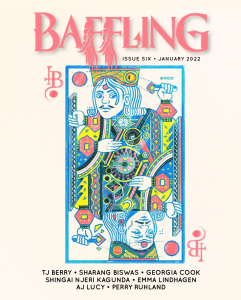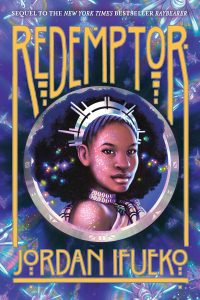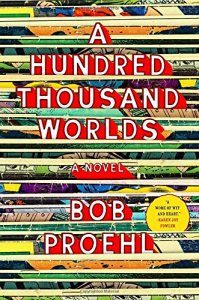Charles Payseur Reviews Short Fiction: khōréō, Baffling Magazine, Analog, and Asimov’s
 khōréō 11/21
khōréō 11/21
Baffling Magazine 1/22
Analog 1-2/22
Asimov’s 1-2/22
Hello and welcome to my first column as a short fiction reviewer here at Locus. I plan to cover a mixture of print and online publications, filling in as I can around the existing short fiction coverage. My aim is to engage deeply with the works I cover, and hopefully provide readers with something of a roadmap to stories they’ll truly enjoy.
khōréō magazine celebrated its fourth issue in November 2021 with a new food-themed release, a subject near and dear to my heart that yielded a bounty of interesting speculative short stories. In Eugenia Triantafyllou’s “Tomatoes”, a hereditary vegetable-based magic has been weakening in the narrator’s family for some time. It’s a magic that requires blood and sacrifice – something the narrator is not keen to be trapped in. Yet as they seek to avoid a fate they fear will destroy them, they discover something about the magic around them, and about their own connection to the family’s tomatoes. Disturbing at times with its imagery and action, the piece marries horror and fantasy quite well, serving up a literary meal rich and dense and quite good. Malavika Praseed’s “My Mother’s Samosas” similarly edges around some deep shadows as a daughter suspects a corrupting magic in her mother’s cooking – one that snares the girl’s father, and might not be satisfied with just him. The light speculative touch reveals the messy lines of family and identity in a hostile and prejudiced space, and makes room for a more profound understanding between the characters, and especially between mother and daughter.
The issue adds a bit of light zest with “Review for: Izakaya Tanuki” by J.L. Akagi, framed as a review of a special little restaurant where the reviewer and his partner find a rare magic and distant memory. The worldbuilding is subtle but impressive, and the tone is chatty and enthusiastic, making for a light and delightful snack of a story. The issue closes on the remarkable “Sorry We Missed You!” by Aun-Juli Riddle, which finds a mother and daughter running a potato-based food spaceship. Exploring freedom and possibility, memory and family, the story is warm and vivid, conjuring up the ghosts of fear, loss, and confinement, only to banish them with the power of food and flavor. It’s foodie SFF at its best, managing an emotionally impacting narrative, wonderful speculative setting, and fantastic character work all around deliciously evocative prose. Bon appétit!
Dropping on the last day of 2021, Baffling Magazine’s sixth issue closes out the first full year of the publication (launched midway through 2020) and continues its focus on queer speculative flash fiction. The issue balances stories of tender hope and bitter sadness. In the later camp, “Pod 530217-A” by Emma Lindhagen is a touching look at a broken promise of technology as told by the inheritor of a cryogenic freezing company who has to deal with a future where none of the problems people hoped to sleep through have been cured, not even how to thaw people out successfully. Sadness, disappointment, loss, and fragility are all captured with weight and power. It’s not a happy piece, but it’s a wonderful commentary on how some guiding stars fall and fade. Meanwhile “The Little Time We Have” by Georgia Cook is a fun and romantic take on vampires as two women seek to recognize and value their life together: the little things and the big things, quirks and annoyances, and the endearments and acts of intimacy and kindness. Their relationship is both eternal and finite, and worth reflecting on and appreciating, like the story itself. And happiness and sadness mingle in “To Exhale Sky”, a stunning work by Shingai Njeri Kagunda, in which a woman can hold the stars within her, breathe her grief into objects of power, and tell stories to inspire and connect, especially herself and her lov – even as her love fights cancer and the stars seem to dim. The style of the story blends folklore and myth and romance, harnessing a magic of storytelling that absolutely shines.
The January/February Analog opens with a guest editorial from Richard A. Lovett, looking at the idea of warnings and disasters, how even with clear signs and precedents, human action often falls far short of what’s needed to protect and help people. And while the editorial doesn’t draw a direct line from real world speculation to speculative fiction, the issue is perhaps at its sharpest where its stories echo with warnings about possible (and possibly quite grim) futures. It’s a point most strongly underlined in David Whitaker’s flash fiction, “Soroboruo Harbormaster’s Log”, in which a planetary AI is mostly silent witness to a cycle of exploitation and colonization that refuses to learn from the past. Though short, it definitely hits above its weight when it comes to twisting the hopes of planetary exploration into something grim and haunting. “Splitting the Dollar” by Meghan Hyland similarly explores a post-disaster world where people are looking for ways either to escape the crush of problems on Earth, or else fix them. And it looks at that danger of ignoring the lessons of the past, of compromise when at least one side of the negotiations is acting in bad faith. Unlike Whitaker’s grim take, though, this story offers at least some reason for hope, albeit a slim one, circling a world that needs a lot of help to survive.
Meanwhile, “The Middle of Nowhere” by Rachel S. Bernstein looks at a revolutionary new technology, instant transporters, which become tools of violence and terror as the existing social injustices and the very idea of borders conflict with the promise of a technology that could, and perhaps that should, erase them. Chilling in the way it hides the body count accrued during the narrative, the piece warns of the very real and staggering costs of social change lagging so far behind technology’s advancement. This warning is also brushed against in Louis Evans’s “Doe No Harm”, though in a much different way, showing the frustrations with personal privacy getting in the way of medical technology aiding those trying to save lives. And it reveals the messy and blurred lines of consent and harm as it traces the outlines of a tragedy. It offers no easy answers, instead opening the door to some necessary conversations about care, medicine, and choice.
Not every story in the issue deals with warnings, though, and many are a bit more straightforward tales of space adventure and discovery. The issue’s novella, “Communion” by Jay Werkheiser & Frank Wu, as well as “The Lobster Pot” by Tony Ballantyne, tell stories of chance encoun ters between humans and something rather alien, something dangerous that acts essentially as a puzzle that needs to be solved, that might unlock for the characters some vital information and allow them access to the future better prepared and equipped than they were before. They’re both nicely paced and entertaining stories, though the Ballantyne’s might not stand as well on its own, being the continued adventures of a previously established setting and its characters.
My favorite piece in the issue, though, is Joe M. McDermott’s novelette “Wind Gets Her Own Place”, a touching look at a young woman’s trip from Earth to a distant colony, one she arrives at more alone than when she departed her home world. Navigating loneliness, abuse, and the vulnerabilities of growing up, the story manages a deep, character-driven experience where the stakes are achingly personal, small only when considered from the outside. It’s a beautifully worked tale of distance, loss, and friendship, with a charming voice and style.
The January/February Asimov’s is interested in history in different ways. “Unmasking Black Bart” by Joel Richards takes a dive into the personal history and nostalgia of a man attending a high school reunion and reconnecting with old friends while kinda sorta investigating a strange series of robberies. It’s a quieter piece but full of layers, interested in the masks people wear, both physically and metaphorically. Michael Swanwick’s “The Beast of Tara” on the other hand, looks at people trying to connect with the ancient past through new acoustic technology, and the various interests trying to either aid or stop them. Though connected to an established setting, the work stands well on its own and offers an interesting take on time travel tropes. A.A. Attanasio’s novelette “River of Stars, Bridge of Shadows” continues the author’s return to fiction writing, from which he has been largely absent since 2007, though he’s had a few works out in the last three years. The story also looks at connecting a present (set far in the future) to a very distant past (though also our future) as a space flight is interrupted by a vexing emergency and a young person finds herself suddenly in the company of someone who’s lived for a very, very long time. Lyrical and at times dense in its language and action, the story provides a look at humanity stretched across eons, as captured in a strange crisis that’s very almost a complete disaster.
The two novellas included neatly bookend the issue. Nick Wolven’s tragic “Snowflake” is about a performer trying to reform her image, trying to stay on stage and in the spotlight as her personal demons and the hungers of those around her threaten to tip her into ruin. As captured by her best friend, it’s a gripping read about straining mental health and addiction, and about the ways that the dreams of youth can become something much more like nightmares. Closing things out, “Goldie” by Sean Monaghan finds a group of scientists researching an alien world and witnessing the passing of an enormous being who helps to give them all a bit of needed perspective. It’s a slower piece, matched to the speed of the being who acts almost like a walking island, and it manages its emotional beats very well, balancing them against the wonder and beauty of the world the group is studying. Wonderfully done.
Recommended Stories
“Wind Gets Her Own Place”, Joe M. McDermott (Analog 1-2/21)
“Sorry We Missed You!”, Aun-Juli Riddle (khōréō magazine #4)
“To Exhale Sky”, Shingai Njeri Kagunda (Baffling Magazine 12/21)
This review and more like it in the February 2022 issue of Locus.
 While you are here, please take a moment to support Locus with a one-time or recurring donation. We rely on reader donations to keep the magazine and site going, and would like to keep the site paywall free, but WE NEED YOUR FINANCIAL SUPPORT to continue quality coverage of the science fiction and fantasy field.
While you are here, please take a moment to support Locus with a one-time or recurring donation. We rely on reader donations to keep the magazine and site going, and would like to keep the site paywall free, but WE NEED YOUR FINANCIAL SUPPORT to continue quality coverage of the science fiction and fantasy field.
©Locus Magazine. Copyrighted material may not be republished without permission of LSFF.








Thank you for continuing the important work of reviewing short fiction, a job too few take on!